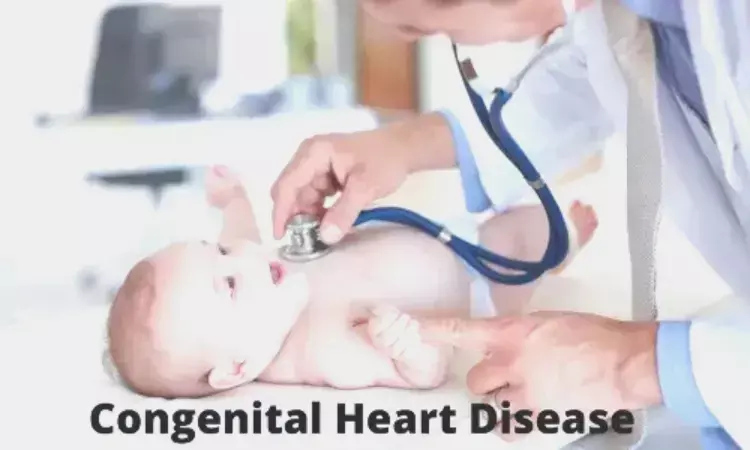- Home
- Medical news & Guidelines
- Anesthesiology
- Cardiology and CTVS
- Critical Care
- Dentistry
- Dermatology
- Diabetes and Endocrinology
- ENT
- Gastroenterology
- Medicine
- Nephrology
- Neurology
- Obstretics-Gynaecology
- Oncology
- Ophthalmology
- Orthopaedics
- Pediatrics-Neonatology
- Psychiatry
- Pulmonology
- Radiology
- Surgery
- Urology
- Laboratory Medicine
- Diet
- Nursing
- Paramedical
- Physiotherapy
- Health news
- Fact Check
- Bone Health Fact Check
- Brain Health Fact Check
- Cancer Related Fact Check
- Child Care Fact Check
- Dental and oral health fact check
- Diabetes and metabolic health fact check
- Diet and Nutrition Fact Check
- Eye and ENT Care Fact Check
- Fitness fact check
- Gut health fact check
- Heart health fact check
- Kidney health fact check
- Medical education fact check
- Men's health fact check
- Respiratory fact check
- Skin and hair care fact check
- Vaccine and Immunization fact check
- Women's health fact check
- AYUSH
- State News
- Andaman and Nicobar Islands
- Andhra Pradesh
- Arunachal Pradesh
- Assam
- Bihar
- Chandigarh
- Chattisgarh
- Dadra and Nagar Haveli
- Daman and Diu
- Delhi
- Goa
- Gujarat
- Haryana
- Himachal Pradesh
- Jammu & Kashmir
- Jharkhand
- Karnataka
- Kerala
- Ladakh
- Lakshadweep
- Madhya Pradesh
- Maharashtra
- Manipur
- Meghalaya
- Mizoram
- Nagaland
- Odisha
- Puducherry
- Punjab
- Rajasthan
- Sikkim
- Tamil Nadu
- Telangana
- Tripura
- Uttar Pradesh
- Uttrakhand
- West Bengal
- Medical Education
- Industry
Type 1 diabetes during pregnancy may increase risk of most types of congenital heart defects in offsprings: JAMA

Finland: A recent study published in JAMA Network Open has revealed type 1 diabetes (T1D) to be a risk factor associated with all subtypes of congenital heart defects (CHDs), while obesity and overweight were associated with certain CHD types, indicating distinct teratogenic mechanisms.
The cohort study of over 620,000 children revealed that maternal T1D was associated with a 3.77-fold increase in adjusted odds for any CHD in offspring and the risk was increased in six of nine CHD subgroups. There are associations between obesity and overweight with odds of offspring CHD in a few anatomical subgroups.
Maternal diabetes and obesity or overweight are known to be associated with increased CHD risk in offspring, but no large studies have analyzed outcomes associated with these factors in 1 model. To fill this knowledge gap, Riitta Turunen, Helsinki University Hospital and University of Helsinki, Helsinki, Finland, and colleagues aimed to investigate the association of maternal diabetes and overweight or obesity with CHDs among offspring in 1 model in a nationwide, population-based register study.
The study was conducted in a birth cohort from Finland comprising children born from 2006-2016 (620 751 individuals) and their mothers. The researchers assessed maternal prepregnancy body mass index (BMI), categorized as underweight (<18.5), normal (18.5-24.9), overweight (25.0-29.9), and obesity (≥30). They also classified maternal diabetes status as no diabetes, type 1 diabetes, type 2 or other diabetes, and gestational diabetes, was assessed.
Odds ratios (ORs) of isolated CHDs were found in children. In addition, nine anatomical CHD subgroups were studied.
The study led to the following findings:
- Of 620 751 children (51.0% males; 92.3% of mothers aged 20-40 years) born in Finland during the study period, 1.7% of children had an isolated CHD.
- Maternal type 1 diabetes was associated with increased odds of having a child with any CHD (OR, 3.77) and 6 of 9 CHD subgroups (OR range, 3.28 for other septal defects to 7.39 for transposition of great arteries) compared with no maternal diabetes.
- Maternal overweight was associated with left ventricular outflow tract obstruction (OR, 1.28) and ventricular septal defects (OR, 0.92), and obesity was associated with complex defects (OR, 2.70) and right outflow tract obstruction (OR, 1.31) compared with normal maternal BMI.
The cohort study emphasizes T1D as a risk factor linked with offspring CHDs, whereas gestational diabetes and maternal obesity and overweight were associated with a smaller risk in risk, at least in this high-resource setting with universal antenatal care. The risk at the population level is substantial with an increasing prevalence of maternal overweight and GD.
It has been shown that standard maternal diabetes treatment is linked with a lowered risk of anatomical malformations in offspring. This, primary prevention of maternal obesity and overweight and careful treatment of pregestational diabetes may hold the opportunity to lower the disease burden.
"The prevention of these CHD subtypes may be further improved by a better understanding of the underlying mechanisms of maternal obesity and obesity in increased offspring risk for left ventricular outflow tract obstruction (LVOTO), right ventricular outflow tract obstruction (RVOTO), and other complex defects," the researchers wrote.
Reference:
Turunen R, Pulakka A, Metsälä J, et al. Maternal Diabetes and Overweight and Congenital Heart Defects in Offspring. JAMA Netw Open. 2024;7(1):e2350579. doi:10.1001/jamanetworkopen.2023.50579
Dr Kamal Kant Kohli-MBBS, DTCD- a chest specialist with more than 30 years of practice and a flair for writing clinical articles, Dr Kamal Kant Kohli joined Medical Dialogues as a Chief Editor of Medical News. Besides writing articles, as an editor, he proofreads and verifies all the medical content published on Medical Dialogues including those coming from journals, studies,medical conferences,guidelines etc. Email: drkohli@medicaldialogues.in. Contact no. 011-43720751


